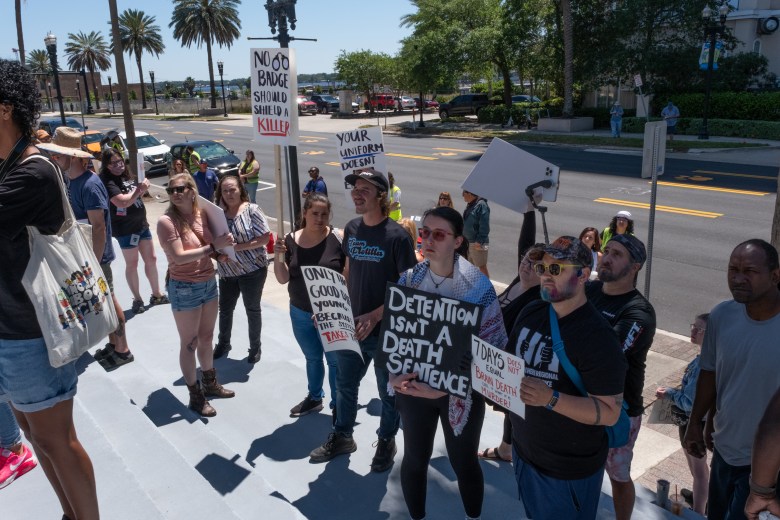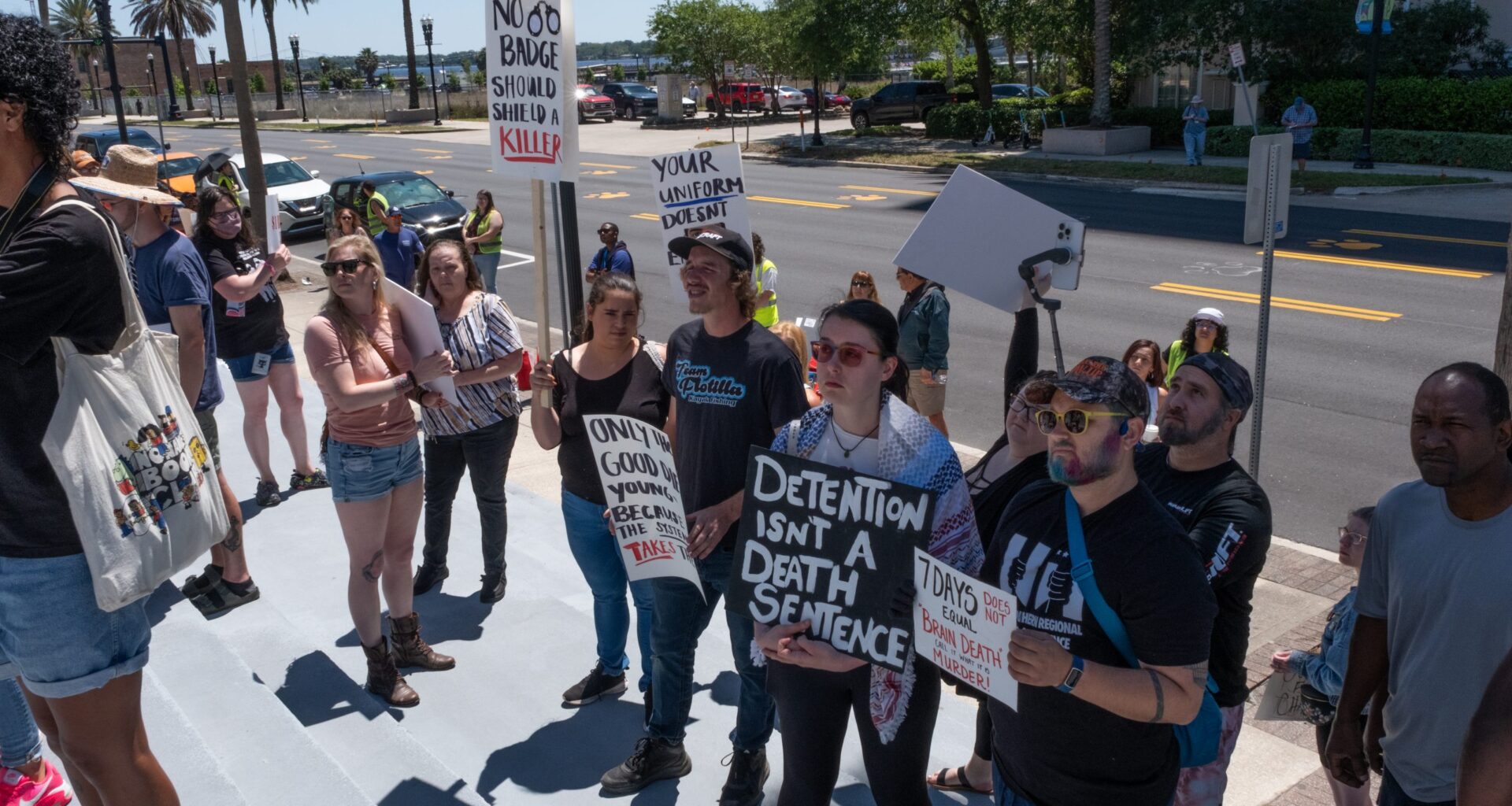 Protesters rallied outside of the Jacksonville Sheriff’s Office headquarters on April 13, 2025 in response to the in-custody death of Charles Faggart, who died after he was beaten by jailers, according to his family’s attorney. [Malcolm Jackson for The Tributary]
Protesters rallied outside of the Jacksonville Sheriff’s Office headquarters on April 13, 2025 in response to the in-custody death of Charles Faggart, who died after he was beaten by jailers, according to his family’s attorney. [Malcolm Jackson for The Tributary]
The Jacksonville Sheriff’s Office has not yet begun an internal affairs investigation into the nine officers stripped of their jail duties following a clash with 31-year-old Charles Faggart, who died in early April at UF Health, another loose thread in a slow-moving series of investigations surrounding the controversial death.
Faggart’s family, through an attorney, told The Tributary that over the course of the more than six months that have passed since he died, they have developed “growing concern over the lack of movement in the official investigation into his death.”
State Attorney Melissa Nelson’s office has investigated Faggart’s death but recently announced it was letting federal authorities take the lead. The FBI and U.S. Attorney’s Office issued grand jury subpoenas for witness testimony over the summer – which The Tributary recently obtained – but those documents shed little light on what issues federal authorities are scrutinizing, and it’s unclear when that investigation will be done.
State law generally gives police departments 180 days to conduct internal investigations to determine if any rules – as opposed to crimes – were broken, but there can be exceptions to that timeline.
JSO’s own internal affairs investigation into the nine jail officers suspended in the aftermath of Faggart’s hospitalization “will begin once the criminal investigation is complete,” said Vic Micolucci, a JSO spokesperson.
Since April, those officers have been reassigned to different responsibilities, like courthouse duty, according to JSO records.
That leaves no official avenue in which Faggart’s family or the public are likely to soon learn more about why Faggart left the jail in a fatal condition.
“In the last 6 months, there has been little transparency or resolution,” said Sam Smart, an attorney with the Plata Schott Law firm working with Faggart’s family. “The family remains in deep grief and continues to seek answers and accountability.”
Exactly who and what caused Faggart’s death – and what led to his initial clash with guards at the jail – remains a mystery.
Police reports contradicted UF Health medical findings after Faggart was hospitalized. Upon arrival, he was unresponsive, in a fatal condition and doctors made note of his bleeding and bruised face. Faggart suffered multiple injuries throughout his body and significant damage to his kidneys and liver.
Doctors discovered evidence of injuries not disclosed in heavily redacted JSO reports.
Police claimed Faggart admitted to fentanyl use, and an officer witnessed him having a seizure. A urine test conducted by UF Health staff found no evidence of the drug in his system nor was there any indication of Faggart suffering from a seizure.
Faggart’s family learned new information about his death alongside the public. JSO did not reach out to Tracy Karpas, Faggart’s mother, about the hospitalization until more than 36 hours after Faggart was cuffed to a hospital bed on April 7, and the family’s lawyers have been publicly critical of JSO’s information sharing.
In sharp contrast, Smart praised the FBI.
“Their professionalism, responsiveness, and communication with the family have not gone unnoticed,” Smart said. “The family appreciates their efforts to keep them informed and to treat Charles Faggart’s death with the seriousness it deserves.”
The Tributary recently reported federal prosecutors issued subpoenas to 11 Jacksonville Fire and Rescue Department employees who may have responded to JSO’s request to take Faggart to the hospital. As the FBI continues to search for evidence of criminal wrongdoing, the family wants all parties involved to pursue justice for their son.
“We understand the complexities of such investigations. However, we urge all agencies involved to recommit themselves to ensuring that this case is not allowed to languish in silence,” Smart said.
Trinity Webster-Bass is The Tributary’s inaugural Investigative Journalism Fellow.
Related
